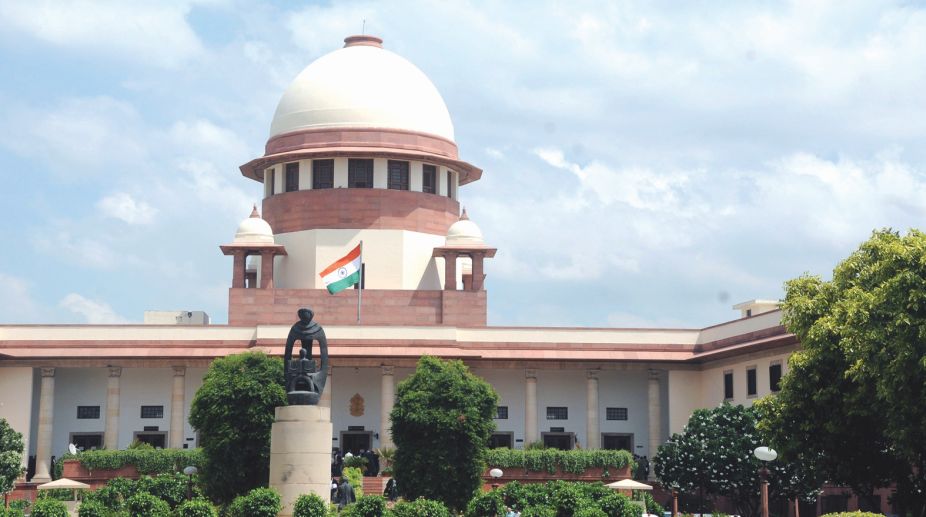Upset that authorities were not realising the seriousness of the situation, the Supreme Court on Tuesday said the critical decline in groundwater level in Delhi could lead to a “water war” for every drop.
A bench of Justice Madan B. Lokur and Justice Deepak Gupta was shocked that groundwater was “over exploited” and the level had declined to “very critical” stage.
After perusing a report filed by the Central Ground Water Board on depletion of groundwater in Delhi, the court said even the area around President’s Estate has very low groundwater level.
“What are we doing? We are not in a position to give water to our President. We can’t give water to Birla Madir. The situation (of groundwater level) is over exploited and very critical all over Delhi,” the bench said.
Senior advocate Ranjit Kumar, assisting the court as amicus curiae in the case, said due to excess extraction of groundwater, almost 90 per cent of Delhi is in a “critical” situation.
Except central Delhi and some parts of west Delhi — which came under the safe category in the report — the groundwater level in the rest of Delhi was over exploited, Kumar added.
The bench said: “We are in a deep rooted trouble. What to do, we are short of water. Can anybody live without water? I don’t think anybody is realising the seriousness of the situation.”
When Additional Solicitor General N.S. Nadkarni, appearing for the Central government, said the “next world war would be on water”, the bench replied: “Forget about world war, Delhi war is going to start soon (on water issue).”
The top court also slammed the authorities concerned for not taking the issue seriously and said there are many problems in Delhi like solid waste management, water issue, unauthorised construction, encroachment, pollution and others.
It said the authorities can’t say it will tackle only one issue. “Everybody has to work together, everybody has to sit together to solve the problems. Things are critical,” it said, adding that situation will become “irreversible” and in some areas “it has become irreversible”.
Mentioning that the report indicated “extremely sad affair” as almost whole of Delhi was in a “critical stage”, the bench sought responses from the Ministry of Water Resources, the Delhi government and the Delhi Pollution Control Board on the report.
The court now posted the matter for hearing on May 15.
On the issue of unauthorised construction and encroachment in Delhi, the bench was informed by advocates Ranjit Kumar and A.D.N. Rao that Khan Market and Sanjay Market have been flouting its order.
In Khan Market, all shopkeepers have extended their shops by at least eight feet, and verandas, pavements have been encroached upon, they said, adding that in Sanjay Market, multi-storyed buildings have come up on properties sealed in 2007.
The amicus curaie said the Special Task Force (STF), formed by the Central government to monitor issues relating to unauthorised constructions in Delhi, has not taken any action with regard to these markets but jhuggis on pavements have been removed.
The bench asked the STF to take action on encroachment in Khan Market and Sanjay Market. It also directed that the STF should meet once in a week.
The court has been hearing pleas relating to the validity of Delhi Laws (Special Provisions) Act, 2006 and subsequent legislation protecting unauthorised construction from being sealed in Delhi.
Earlier, the court halted all construction, not in conformity with building bye laws, in 1,797 unauthorised colonies in Delhi.












